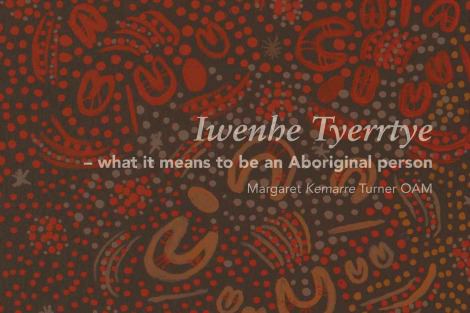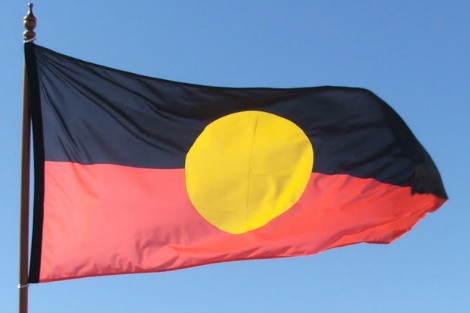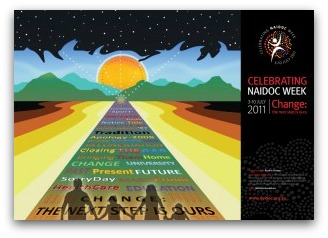Keywords: Fr Brian Mccoy Sj
-

AUSTRALIA
- Mike Bowden
- 10 August 2016
11 Comments
MK rang me after the 4 Corners program on the treatment of children at Don Dale. In western lingo we talk about a 'duty of care', but for my friend MK and the Arrernte people it is more fundamental than that. They talk abou arntanrte-aremele, which means looking after, holding, nurturing or caring for. Altyerre teaches that we must care for everybody, even the people who do wrong. And 'looking after' the children is the primary role of life. This is not about western, whitefella law, it just how it is.
READ MORE 
-

AUSTRALIA
- Brian McCoy
- 26 January 2016
5 Comments
Every time I cross Sydney Harbour by train heading to the North Shore I look for the Aboriginal flag that flies from the top of the Jesuits' St Aloysius' College at Milsons Point. It was first raised on 25 January 1988, on the eve of the Australian Bicentenary, to mark the final day, 200 years previously, that Aboriginal people had complete freedom to their lands and customs before the arrival of the First Fleet.
READ MORE 
-

- Brian McCoy
- 25 February 2015
2 Comments
I have witnessed Aboriginal payback. It was in the Kimberley on an open sports oval. A young girl from the community had been found killed and I watched the community's desire to re-balance itself with the serious and public punishment of the offender. The whole community was present as the family of the deceased took it in turns to beat his back and stab his thigh. It was one of the most highly charged emotional events I have ever experienced.
At the end, after all the punishment, he fell. The nurses took him into the health clinic and he was later evacuated to hospital. After the ritual was over I remember speaking to the father of the young girl. 'I want to kill him', he said. 'But even that will not remove your pain', I replied. His hurt was raw and tangible and nothing seemed able, at that time, to even get close to healing it. Read more
READ MORE
-

AUSTRALIA
The shooting death of 17-year-old African-American Trayvon Martin brought to public attention The Talk, an oral tradition where people who have experienced racial discrimination and violence teach their young to be cautious when they are out in public. Aboriginal Australians have their own version of The Talk.
READ MORE 
-

AUSTRALIA
- Brian McCoy
- 13 February 2012
17 Comments
I will never forget the look on her face. I had asked her a simple question. But I had used her language. She seemed shocked that a white person would even try. Indigenous languages offer rich ways to describe and name our world, and valuable insights and knowledge for all Australians.
READ MORE 
-

AUSTRALIA
- Brian McCoy
- 06 October 2011
17 Comments
I am deeply proud of my Aboriginal friend, who is now a doctor. I have not had the heart to tell her that once she was judged for not being dark enough to be awarded an Indigenous scholarship. While Andrew Bolt argues about freedom of speech, I argue about freedom of identity.
READ MORE 
-

AUSTRALIA
I have just returned from visiting friends in remote Aboriginal communities. It was a sad trip. A large number of young people have died in recent years, some close friends. They represent the trifecta of young peoples' deaths: car accidents, suicides and chronic disease.
READ MORE 
-

AUSTRALIA
- Brian McCoy
- 04 April 2011
28 Comments
I recently spent time with a group of students from a remote community who had been at school down south. After a fight involving other Aboriginal students, they wanted to go home. Senator Jenny Macklin has suggested punishing Aboriginal parents who do not support their children attending school.
READ MORE 
-

AUSTRALIA
- Brian McCoy
- 25 January 2010
1 Comment
Australia Day remindes us of stories of separation within our country, such as the stories of the Stolen Generations. Separation from a parent is something Prince William understands. 'Did your mummy die?' a six-year old asked him during his visit last week.
READ MORE
-

AUSTRALIA
- Brian McCoy
- 12 November 2008
7 Comments
Media exposure of some students' controversial end-of-school celebrations revealed a cultural deficit. Aboriginal men experience rituals that support their transition from boyhood into adulthood. Rituals in Western society are less clear.
READ MORE 
-

ARTS AND CULTURE
Events such as the National Apology and the Northern Territory Intervention loom large in the collective memory. Many of the struggles faced by early 20th century activist Fred Maynard regarding the protection
of Indigenous rights remain with us today.
READ MORE 
-

RELIGION
READ MORE